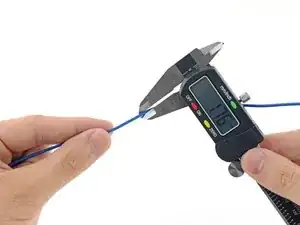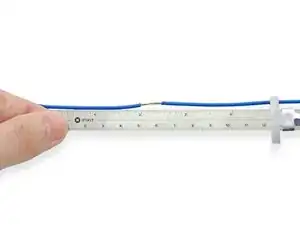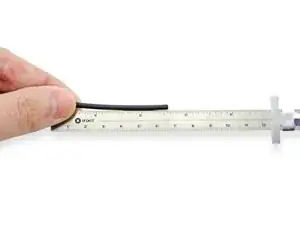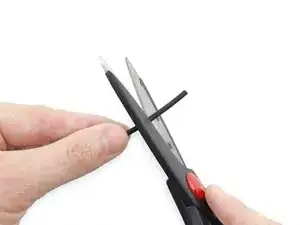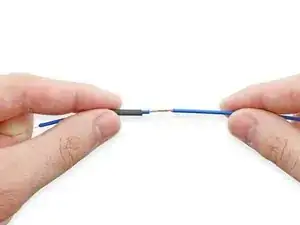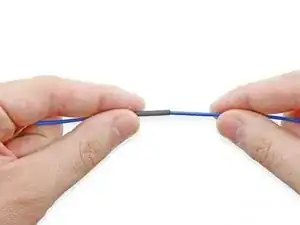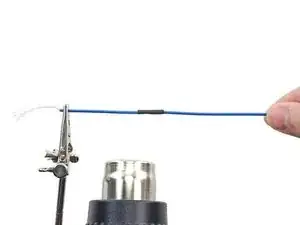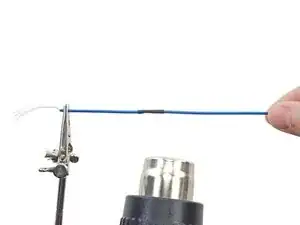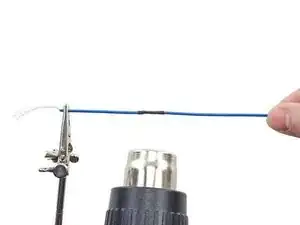Introduction
Use this guide to learn how to use heat shrink tubing to repair frayed sheathing on a wire or cable.
Tools
Parts
-
-
Measure the diameter of the wire, and then choose a piece of heat shrink that will be large enough to slide onto the wire before heating but will still provide a snug fit once heated. The shrunken diameter should be slightly smaller than the wire's diameter to ensure a tight fit.
-
-
-
Measure a length of heat shrink tubing that is slightly longer than the damaged section of wire.
-
-
-
Use a heat gun to shrink the tubing.
-
Continue heating the tubing until it is tightly secured to the wire.
-
7 comments
I find that using a rectangular, one-sided razor blade instead of scissors makes for straighter/cleaner ends, especially vs. larger diameter tubing.
If I don’t have a heat gun, what can I use?
Devnol -
Some alternate heat sources for heat-shrink tubing:
* Soldering iron. Hold the iron close to, but not touching the wrap. You may have to apply heat to multiple sides of the wrap, as the convection may not evenly reach all sides of the wrap.
* Cigarette lighter or candle flame. Not a great solution, but works if no better sources are available. If you let the flame touch the wrap, you can end up with soot depsoited on it. Soot will wipe off easily, but it is easy to burn the wrap and wire, even setting the insulation on fire, if you are careless and let the flame sit too long in one spot or for too long.
